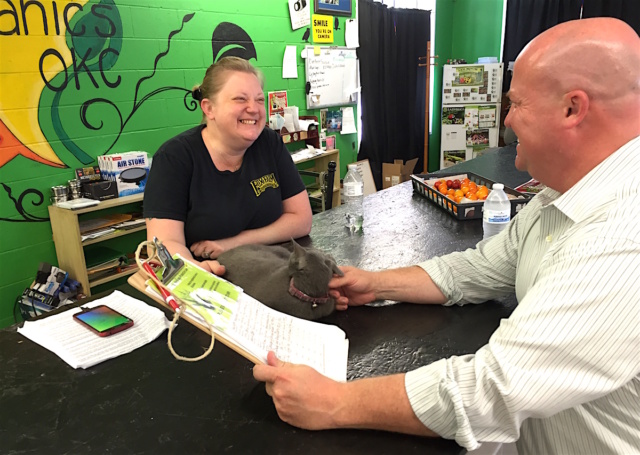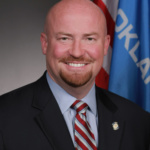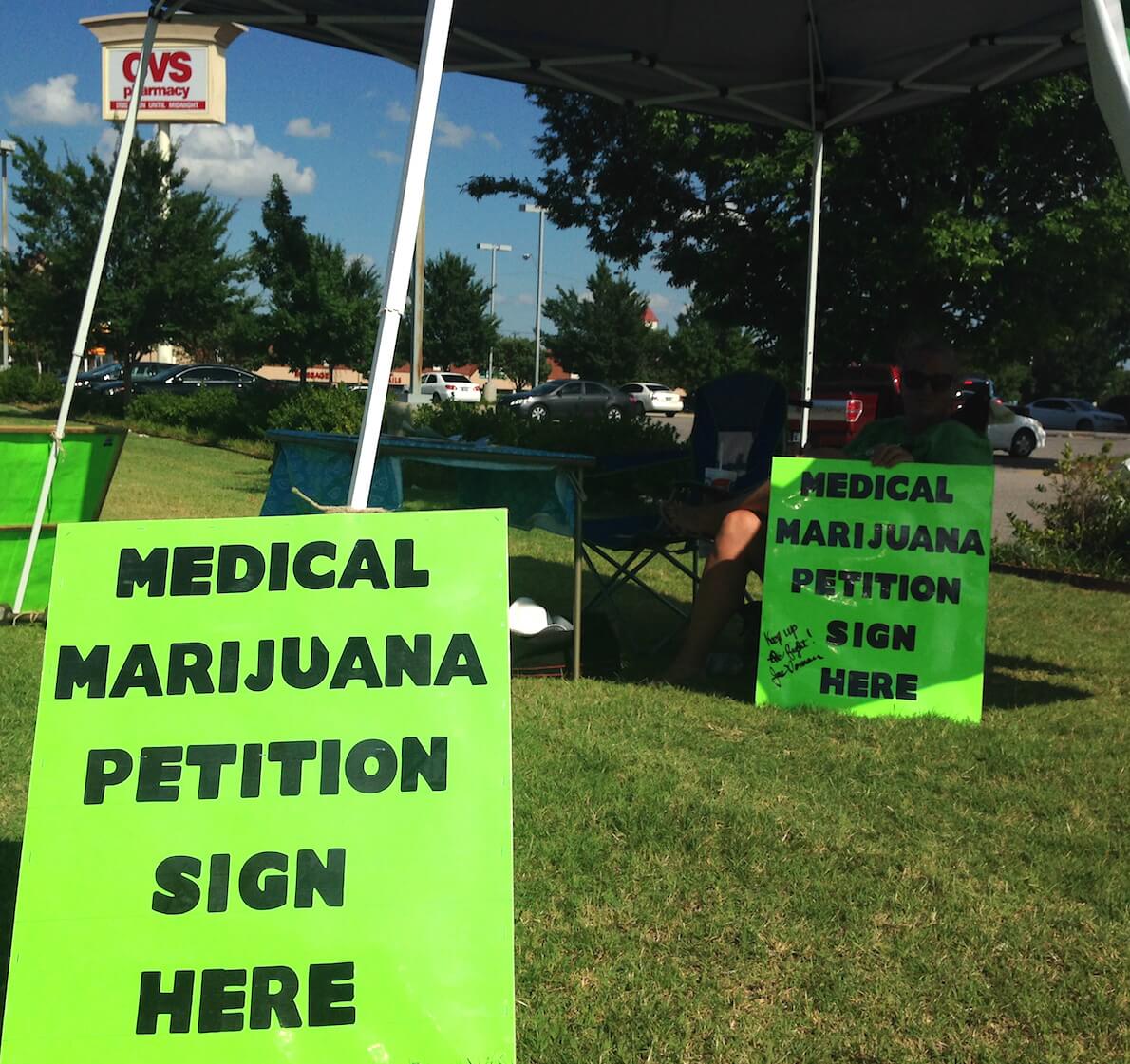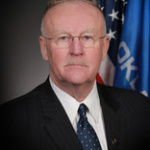

What do Donald Trump and 2014 Oklahoma gubernatorial candidate Joe Dorman have in common?
They’re both in favor of medical marijuana.
Trump’s support of medicinal cannabis has drawn far fewer headlines than so many of the presumptive Republican presidential nominee’s other “policy” expositions. Perhaps it’s because his opponent, Hillary Clinton, also supports medical marijuana.
Meanwhile, Dorman is spearheading the latest medical marijuana ballot initiative from Oklahomans for Health, an organization that seeks to do what might have been unthinkable just a decade ago: legalize cannabis for medicinal use under a doctor’s supervision in the conservative Sooner State.
The Rush Springs Democrat has brought political brains to an effort mostly led by heart and lungs.

“To steal from Trump, I think it’s huge,” Dorman said of presidential candidates supporting medical marijuana in a year where it might appear on Oklahoma’s ballot. “I believe this is going to be a big year for the efforts. There are 10 different states that are trying to do something this year.”
That includes Arkansas, where a petition qualified for the ballot this week. A similar measure received 48.5 percent in the 2012 Arkansas general election, failing by only 30,000 votes.
Were The Donald running against The Dorman here in Oklahoma — or, more specifically, against his State Question 788 efforts — Trump might attack Dorman for his “maturing” position on the subject over time; for flip-flopping, one might say.
Considering Trump’s insult-laden campaign strategy, the billionaire might even nickname the former state representative “Floppy Joe.”
But Dorman doesn’t think his marijuana metamorphosis is a flip-flop, and he doesn’t really care, anyway. He proudly believes he will be on the right side of history as the second major political figure in Oklahoma to push for medical marijuana. (Former Sen. Connie Johnson, D-OKC, made a previous effort the central issue in her 2014 U.S. Senate campaign.)
“My attitude has changed over the last decade, and I think there are a lot of people out there who feel that way, especially if they’ve experienced a loved one going through some kind of medical condition where this can help,” Dorman said. “My grandmother died of colorectal cancer in the 1950s. My mom turned 80 years old this year, and she’s collecting signatures. You have a lot of people out there who are supportive of this.”
Indeed, a Quinnipiac poll June 6 found that 89 percent of Americans support adults being able to use marijuana for medicinal purposes with a doctor’s prescription. A 2013 SoonerPoll showed 71 percent of Oklahomans supporting the idea.
Dorman and Oklahomans for Health believe those levels of support will allow them to obtain the 66,000 registered voter signatures needed to put SQ 788 on November’s ballot as a legislative change, not a constitutional change. The group has until Aug. 11 to submit signatures to the Oklahoma Secretary of State, and petitioners are canvassing the state seeking signators.
“I have two friends who, a couple months ago before the petition started, died of cancer,” Dorman said. “It’s been frustrating on my side that people have come up to me and said, ‘Well, you’ve changed your position on this.’ Long-term, I absolutely have. But in recent times, no.”
Dorman points to his official 2014 campaign policy paper, which notes marijuana and his tacit support for the previous medicinal petition.
He said he has been surprised by how quickly public opinion has changed on the issue over the past decade, and he used himself as an example.
“Ten years ago, Rep. Bill Nations (of Norman) had a bill at the Capitol that was decriminalizing different portions (of marijuana), and I voted against it,” he said.

‘It helped her tremendously’
One of the people who helped broaden Dorman’s perspective is Tina Young, a mother of three in Marlow, Okla., who grew up with the former gubernatorial candidate.
“I was actually the one who contacted Joe to get him behind it because my daughter takes the synthetic, and it has helped her tremendously,” Young said. “She’s 20, and she actually has 27 medical diagnoses, but they put her on Marinol to help with nausea. It actually helped with dystonia and her tremors.”
Dystonia is a disabling disorder that involves the contraction of one or more muscle groups. It can result in abnormal posture, difficulty moving and pain.
For Young’s daughter, Tera, the condition also affects the muscles in her GI-tract. Young said Marinol — the brand name of a synthetic cannabinoid — has helped limit Tera’s tremors and helped revive her ability to eat.
“When the doctors first suggested it for Tera, I was 100 percent against it because I’d had family that messed up their lives doing drugs, and marijuana was one of them,” Young recalled. “I watched her three months be pretty much on her deathbed, and I thought, she’s not getting any better, so let’s try it.”
The results were enough to convince Young to get involved with the Oklahomans for Health petition.
“Tera has signed it. All of our family has signed it,” Young said of the petition. “My mom is actually gathering signatures, as a matter of fact.”
She said she knows broader treatments would be available for many other conditions if SQ 788 passes.
“Of course, Marinol is legal now, but it’s synthetic,” Young said. “So with medical marijuana, she would have fewer side effects. I have an uncle who is actually on it after brain injuries. I was always against it, even with him, until I’d seen it with Tera.”
Young said her daughter had previously been on fentanyl, a synthetic opiate that has seen greater public scrutiny after the overdose death of Prince and investigations into bootleg versions being imported into the U.S. from China where chemical regulations are lax.
“Fentanyl would absorb improperly in her blood stream because she didn’t have any fat,” Young said. “She’s 4’9″ and 86 pounds.”
Under the law proposed by SQ 788, patients with a prescription could legally grow up to six plants and never deal with chemical processing.
Follow NonDoc:
Opposition from a state agency
But far from everyone views medical marijuana as a good idea.
Mark Woodward, spokesman for the Oklahoma Bureau of Narcotics and Dangerous Drugs, said he believes “the marijuana legalization movement is using the ‘medical’ argument to sway public opinion toward their true agenda of outright legalization of pot.”
“If an Oklahoma physician believes a patient might benefit from chemicals in cannabis such as THC and CBD, these are already available in legitimate medical forms including pills, patches, liquids and tincture oil without getting intoxicated by smoking the plant,” Woodward said. “Getting stoned smoking weed is not ‘medicine,’ it is substance abuse.”
In January, The Oklahoman’s editorial board wrote that the failure of previous medical marijuana initiatives to obtain required signatures suggests “that petition organizers are wasting their time.” It concluded that tough-on-crime Oklahomans “have no interest in pretending stoners in the park are pharmaceutical trailblazers.”
Janine Bradley disagrees.
“I encounter more seniors and professional people who are in favor of it than I do your average 20-year-old who just wants to get high,” said Bradley, co-owner of Organics OKC on North Pennsylvania Avenue. “I cry every day from a story I hear.”
Bradley’s store sells organic gardening products, and she said it has hosted medical marijuana petitions on the front counter every time an attempt has been made at changing state law.
Bradley spends her days battling tomato hornworms outside the store’s front door and listening to the feelings of those who sign the petition while buying bottles of various gardening concoctions.
“Officers talk about it with me all the time,” she said, before talking more about senior citizens. “They’ve all gone through chemo. They’re going broke from pharmaceuticals.”
Woodward sees it differently.
“There is no reason to vote to legalize it for ‘medical’ application when THC and CBD are already an option for physicians and their patients in our state,” he said in a statement. “However, most physicians don’t prescribe or recommend THC and CBD oil for their patients because there are already many safer, stronger, more effective, proven, non-intoxicating treatments available.”
Dorman said he has worked with Woodward and OBNDD in the past on issues and contends SQ 788 wouldn’t affect the agency.
“Their job is not going to change one bit, and in fact it is going to reduce the black market where people are not growing it illegally,” Dorman said. “I don’t find their arguments to have any logic.”
While Dorman has yet to convince other political players to endorse the petition, he was surprised to learn of another major state bureaucrat’s position on the matter.
In a statement to NonDoc, Oklahoma Department of Corrections director Joe M. Allbaugh said medical marijuana has “the potential” to help certain Oklahomans.

“My personal belief is medical marijuana used in a controlled environment, monitored and distributed by medical professionals for medicinal purposes helps treat people who suffer from life-threatening illnesses,” Allbaugh said. “I do not support the overall legalization of marijuana for recreational use in any way. I have neither read the initiative petition nor have I met with any representatives who are gaining signatures to have the state questions on the November ballot.
“However, with the right language, it has potential to help many individuals with debilitating illnesses and cut the systematic use of opioid dependency, which can lead to addiction.”
Dorman also referenced addiction issues as an impetus for offering marijuana as a pain-relieving alternative to opiates.
“I’ve had family members with addiction issues, and it’s sad to see people you know in a position like that where they’re hooked on something that’s awful and destroying their life,” Dorman said.
He referenced a conversation with a former constituent about six years ago.
“This was the very last conversation I had with him before he died,” Dorman said. “He called me up one day and was asking (…) ‘When are we going to legalize marijuana in Oklahoma?’ And I told him then that I didn’t think it was going to happen anytime in the near future.
“His son was going through addiction problems with pain pills. I don’t know if [the father had] ever used marijuana, but he felt marijuana would be far better for his son to use to kick the pain pill addiction based on what he’d read. And he didn’t think his son would have developed those pain pill problems if he could have used marijuana as a treatment instead.”
Dorman, who said he has never smoked marijuana himself, said he will never forget the man’s plea.
“That was really one of the first conversations that hit home, and I think it was because my friend died right after that,” he said. “It just stuck with me. It was the very last conversation I had with him.
“In fact, I told his wife about that not too long ago when she was signing the petition. I said he was partly responsible for me being involved in this right now.”
(Editor’s Note: This article was updated to correct the spelling of Tera Young’s name and clarify a reference to patients who could grow medical marijuana. Additionally, Joe Dorman has previously authored a commentary for NonDoc regarding the death of Muhammad Ali.)




















